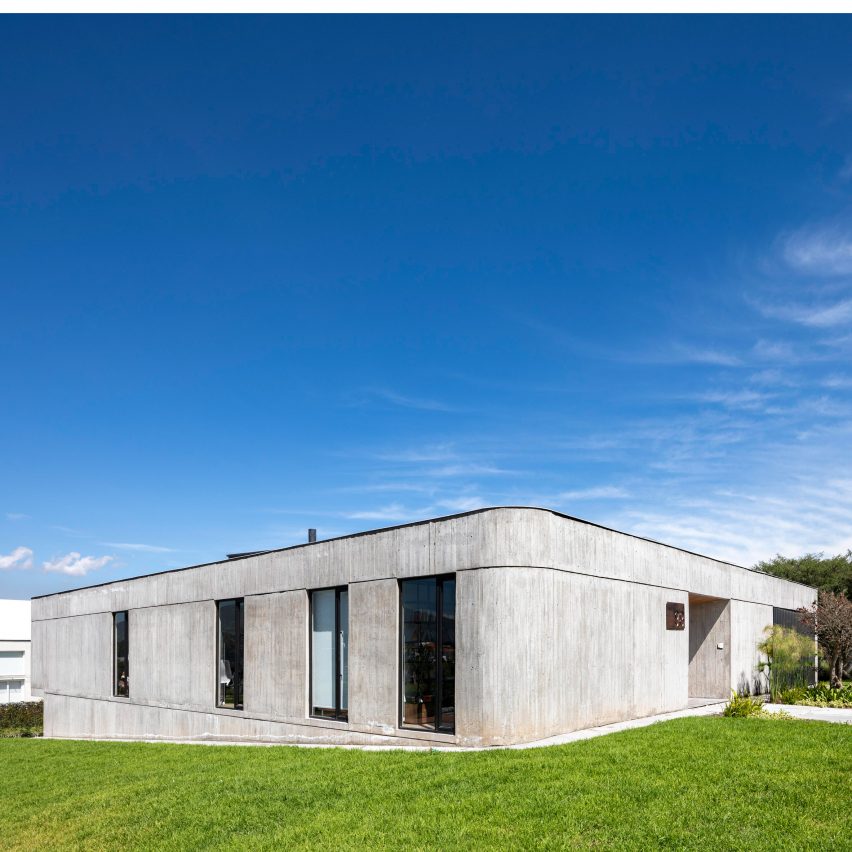
Board-formed concrete imprinted with eucalyptus planks forms the exterior of this home in Quito, Ecuador, by local firm Bernardo Bustamante Arquitectos.
The low-slung house is sited on a corner lot in the Tumbaco neighbourhood, on the outskirts of Quito. Local planning regulations required that the house have a generous front yard, and prohibited the construction of a fence or other obstruction.
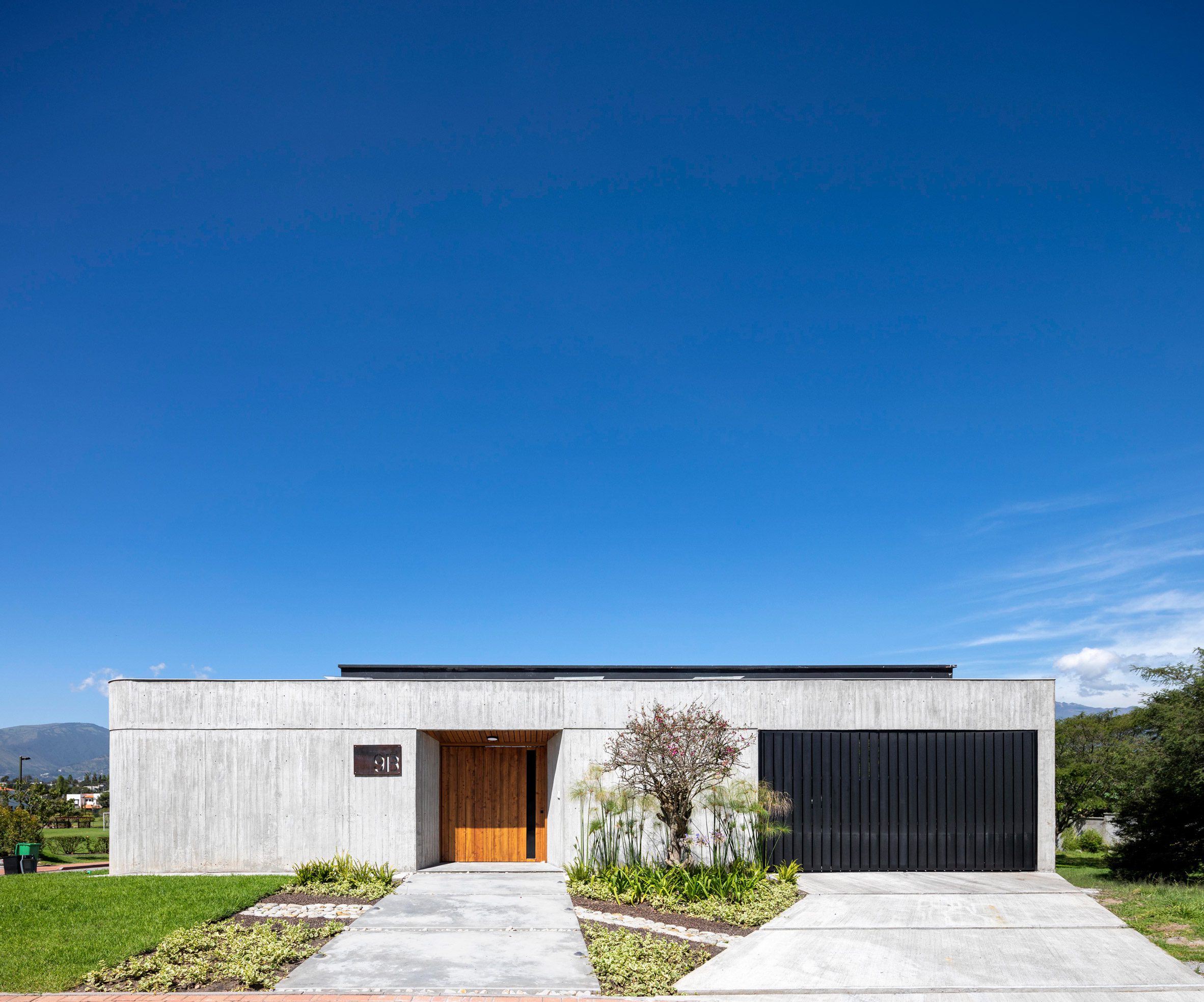
To try and provide the occupants with more privacy, Bernardo Bustamante Arquitectos designed the 350-square-metre home's two street-facing facades with a monolithic concrete exterior and selective punched openings in the bedrooms.
The home's overall composition is an "L"-shaped volume with a rounded corner that is meant to match the outline of the street. Three bedrooms and a home office are laid out along a corridor, forming the long leg of the "L", while the communal spaces are clustered in the perpendicular volume.
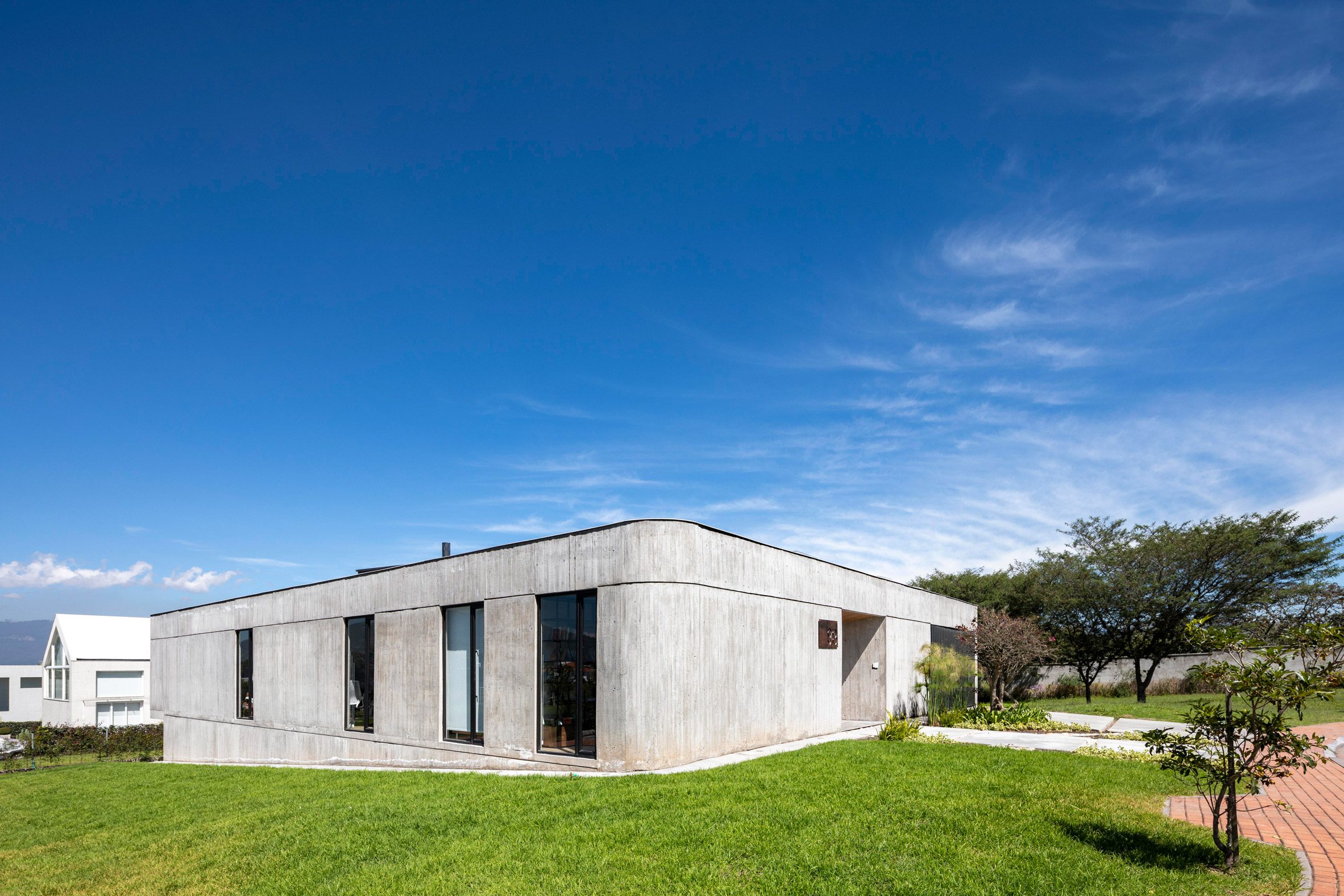
In contrast to the opaque exterior facade, the inward-facing sides of the home are light and open.
"The private area is made with a system of concrete load-bearing walls, with discreet openings, making the rooms contained and warm spaces, while the social area is completely opened by large windows that merge with the garden and the sky," the architects explained.
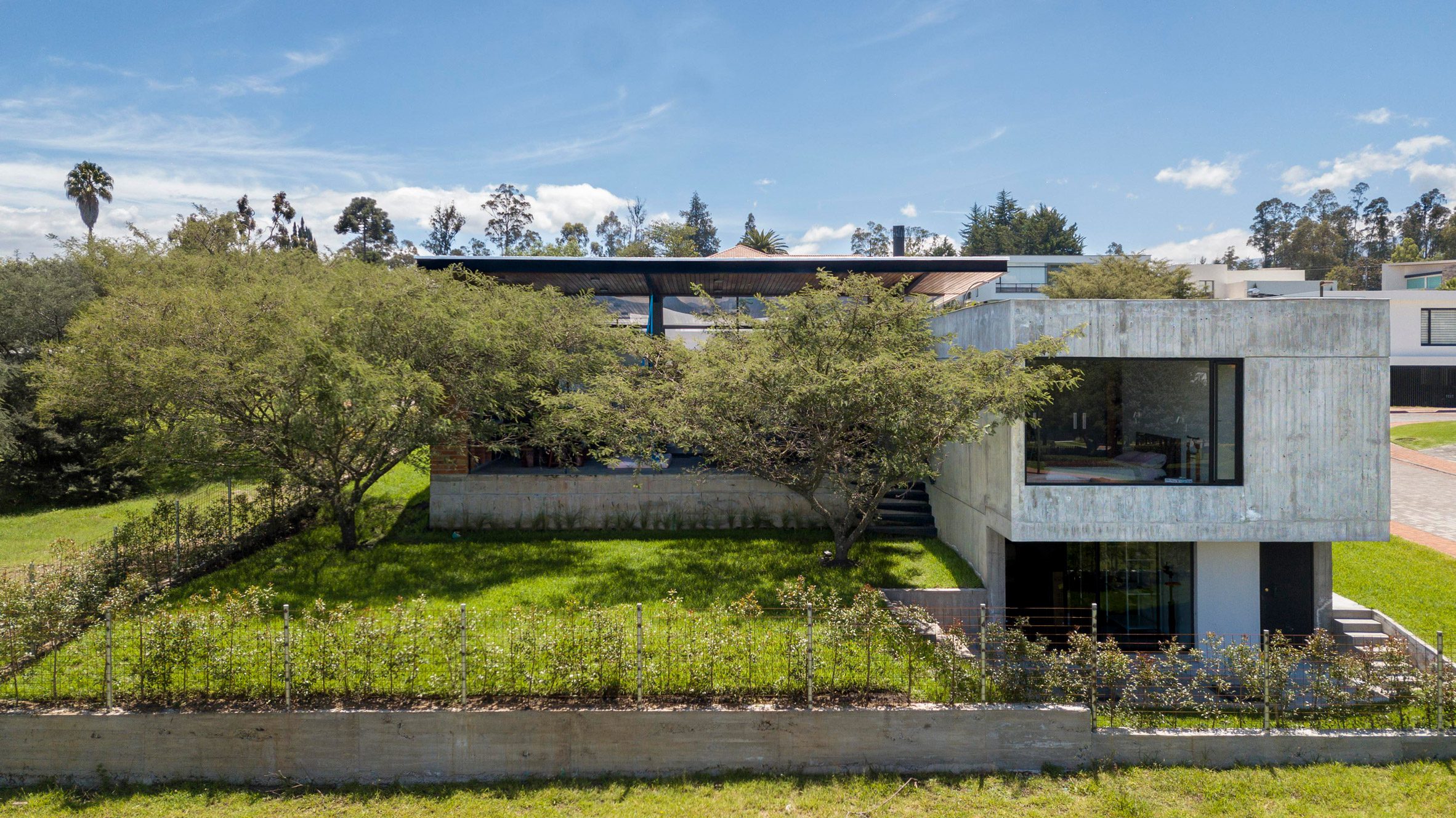
In the communal areas, the roof is also slightly raised, allowing light to pour in through clerestory windows on all sides of the home.
"The program is organized between the private and services area, maintaining a height of a single floor," the architects said. "This enhances the contemplative gardens that are yielded to the public space. Inside, the social area enjoys a large roof slightly inclined to a floor and a half high, where a wonderful space is generated."
The bottom face of this roof is clad in wooden boards that run from the interior to the exterior. It provides a deep overhang to protect the glass wall from direct sunlight and shelter a section of the patio.
Eucalyptus grows abundantly in the region, and was also used for interior finishes and doors.
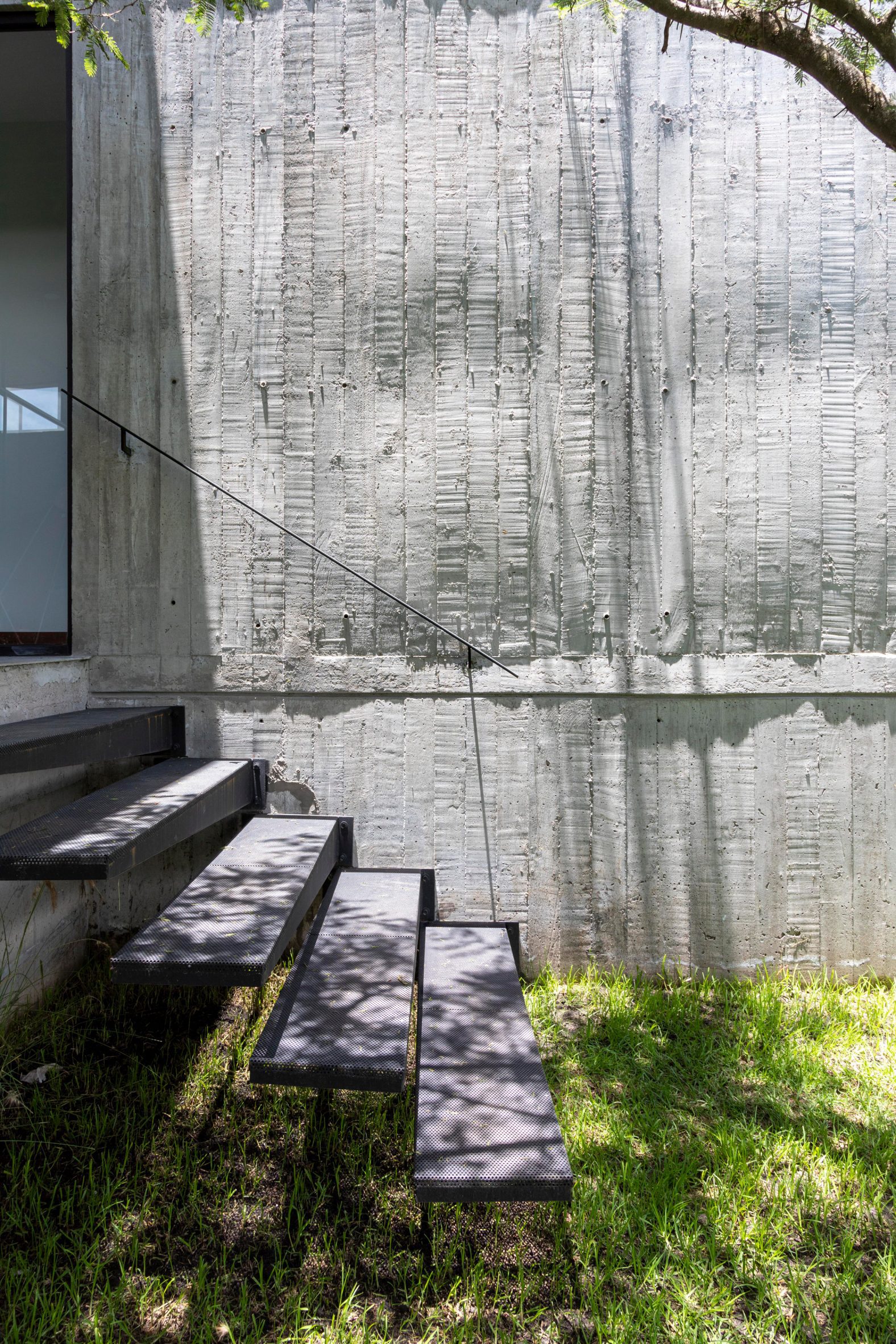
The combination of the eucalyptus printed into the concrete boards and the wood itself lends continuity to the finishes between exterior and interior.
"This vertical modulation of the marks of the molds in the concrete is repeated in the metal and wooden doors, generating order in the facades," said Bernardo Bustamante Arquitectos.
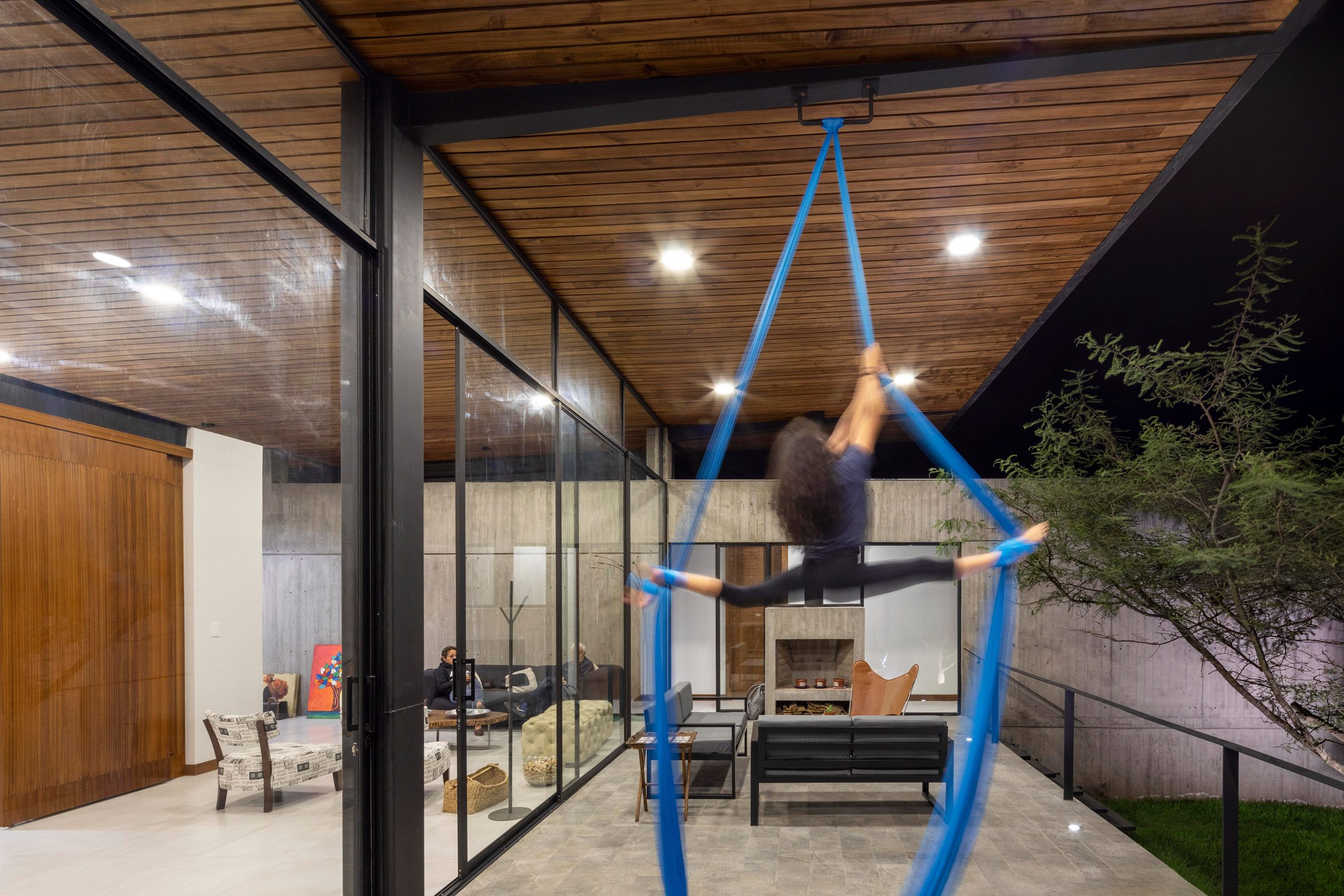
Eucalyptus is also incorporated into a residential project in Ecuador as living trees that provide structural supports for a canopy.
The photography is by Andres V Fotografia Arquitectonica.
Project credits:
Architects: Bernardo Bustamante, Doménika Baquero
Design team: Bernardo Bustamante Arquitectos
Builder: Bernardo Bustamante Arquitectos
Engineering: Iván Delgado
The post Bernardo Bustamante Arquitectos combines eucalyptus and concrete in Quito home appeared first on Dezeen.
No comments:
Post a Comment